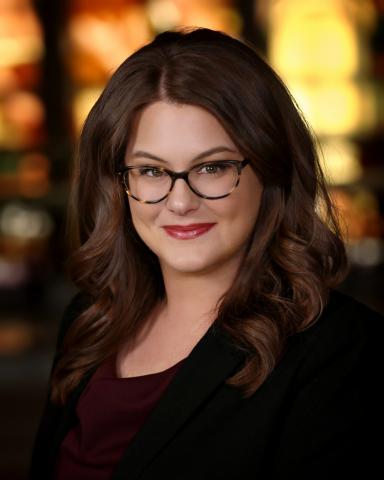University of Denver Helps Alumna Discover Her Passion
Young spellers have the spelling bee, budding scientists have the science fair — and high school students with a passion for agriculture and food justice have the World Food Prize state institutes, annual symposiums in which students submit a research paper, then gather to discuss issues and solutions around global hunger and food security.
“We challenge students to choose a country that’s not their own — many choose to write about countries in the developing world — and choose a factor to focus on, which can be anything from genetically modified crops to gender equity in agriculture to farm-to-market access,” says University of Denver alumna Morgan Day (MA ’13). As director of global programs and partnerships for the Iowa-based World Food Prize (WFP), she runs national and international programs for youth interested in food-related global problems.
“The coolest part about the papers is that we don’t just [ask them to] present their research,” she says. “They have to think critically and present their own solutions based on their research — what do they think has to be done in order to solve this problem?”
Students who excel at the state level are selected to participate in the WFP’s annual Global Youth Institute, a three-day event in Des Moines that coincides with the announcement of the foundation’s World Food Prize, a Nobel-equivalent honor whose past honorees include M.S. Swaminathan, a geneticist who helped introduce high-yielding wheat and rice varieties to farmers in India, and former U.S. Senators George McGovern and Bob Dole, who were honored in 2008 for their commitment to school nutrition.
“While all these international experts and key stakeholders are there, the students are there as well,” Day says. “We purposefully co-mingle them with the conferencegoers so they’re getting to sit with the president of the Food and Agriculture Organization at lunch or something like that. We had a student who had written her paper about a specific agriculture program within Malawi, and on the panel of experts for her roundtable was former [Malawi] president Joyce Banda. [Here was] the person who actually instituted those policies, and they were able to have this incredible conversation.”
Day credits her high school and college experiences with Model United Nations with sparking her interest in food insecurity. She came to DU’s Josef Korbel School of International Studies as a graduate student to further explore her passion for the issue.
“I knew that Korbel would offer me that great generalist training — that I would have the best practices and training from some of the most preeminent folks in international development,” she says. “I was interested in food security and sustainable agriculture, so my concentration while I was at Korbel was in sustainable food security policy.”
When it came time to do an internship, Day discovered the organization that eventually would become her life.
“I knew that I absolutely wanted to do something that was focused on international agriculture or international food security issues,” she says. “I was really lucky to have heard about the World Food Prize and the work the organization did. I applied, did the interview, and the rest was history.”
In her new role as director of global programs and partnerships (she was promoted in December), Day hopes to provide young people with the same inspiration and sense of purpose the World Food Prize gave her. Through such programs as the Wallace-Carver Fellowship — which offers college students the opportunity to collaborate with scientists and policymakers through paid fellowships at USDA research centers and offices across the U.S. — to the George Washington Carver Internship, which lets student work one-on-one with a staff mentor at the WFP, the organization takes seriously its mission to find the next generation of food-security innovators.
“We are just trying to give students a taste of where they could plug in,” Day says, likening the experience to her formative years in the Model UN. “I know we take those little club-type activities for granted, but it is really incredible how personal and impactful experiences like those can be for young people,” she says. “Being able to be a part of that light-bulb moment for a young person feels really special. And it’s something that I take pretty seriously.”



